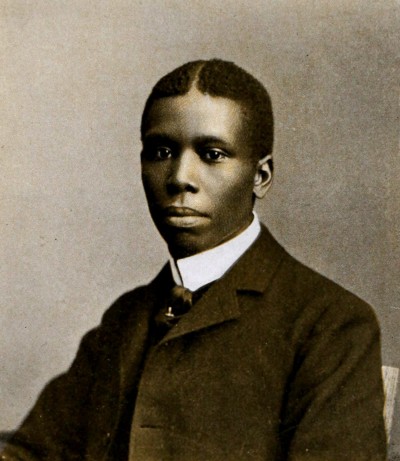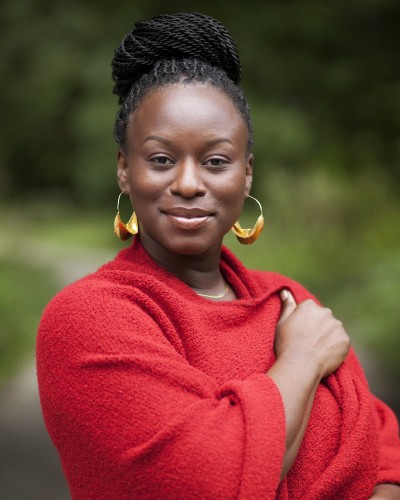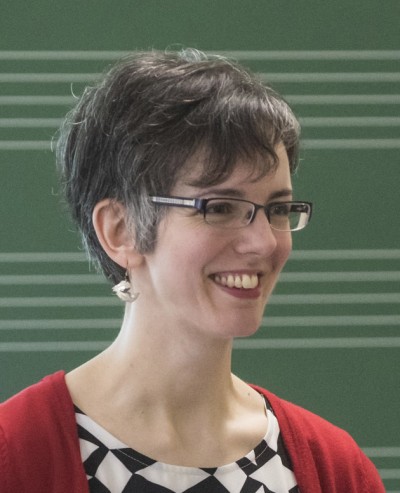Minnita Daniel-Cox, soprano: musical settings of the African-American poet’s work; Thursday, Oct. 6, 7:30 p.m.
TACOMA, Wash. – For those familiar with the work of acclaimed poet Paul Laurence Dunbar (1872–1906), this fall will bring a rare treat. Those who have not read the poems of the man once known as the “African-American poet laureate,” the moment maybe even more memorable.
On Thursday, Oct. 6, at 7:30 p.m., guest artist Minnita Daniel-Cox, soprano, will present Singing the Poetry of Paul Laurence Dunbar, a free lecture-recital on settings of Dunbar’s poems for voice and piano. Daniel-Cox, a member of the voice faculty at the University of Dayton, will be accompanied by Puget Sound’s Gwynne Brown on the piano in Kilworth Memorial Chapel. Admission is complimentary, and tickets are not required.
Singing the Poetry of Paul Laurence Dunbar will include a dozen musical works written over a span of almost 80 years. The songs vary from the romantic ballad “How Shall I Woo Thee?” by Dunbar’s friend and collaborator, Samuel Coleridge-Taylor; to the haunting tones of “Love Memory,” by modern composer H. Leslie Adams; to the soulful “Theology,” by pioneering composer and music publisher Betty Jackson King. Three popular songs from 1906 created by songwriter Carrie Jacobs-Bond in collaboration with Dunbar, also will be performed.
Poet and writer Paul Laurence Dunbar suffered an early death from pneumonia at the age of 33, but during his short lifetime, he penned 12 books of poetry, four books of short stories, a play, and five novels. Often in his writing, he used local dialect and humor to entertain readers and convey political messages from the period’s racial attitudes.
Born in Dayton, Ohio, and raised by parents who were freed slaves from Kentucky, Dunbar grew up hearing stories about plantation life that later influenced his writing's tone and character. Unable to afford college, the young Dunbar worked as an elevator operator while trying to establish himself as a writer. In 1893 he self-published his first collection of poetry, Oak and Ivy, and, to help pay for its costs, sold the book for a dollar to people riding on the elevator.
That same year he moved to Chicago, where he met Frederick Douglass, the renowned abolitionist who rose from slavery to political and literary prominence. Douglass got Dunbar a job as a clerk at the first World’s Fair in Chicago and arranged for him to read a selection of his poems. Soon after, Dunbar’s poems began appearing in major newspapers and magazines—though it was critical praise for his second book, Majors and Minors, that finally put his name in front of the general public and won him attention in literary circles across America.
Minnita Daniel-Cox, soprano, is an assistant professor of voice and coordinator of the voice area at the University of Dayton. Her special relationship with Dunbar's poetry developed when she performed, in collaboration with poet Herbert Martin, the vocal recital I Know Why the Caged Bird Sings: A Celebration of Paul Laurence Dunbar across the United States. Recently Daniel-Cox has performed with the Dayton Philharmonic Orchestra, Springfield Symphony Orchestra, Miami Valley Symphony Orchestra, and Bach Society of Dayton. She debuted with the Dayton Opera in Sister Rose's role in Dead Man Walking; performed Leonora in the world premiere of the opera Witness; and played Irene in the premiere of The Dreamy Kid, which The Ann Arbor News described as “compellingly and beautifully sung.” Daniel-Cox received her Master of Music and Doctor of Musical Arts degrees from the University of Michigan.
Gwynne Kuhner Brown ’95, piano, is an associate professor of music history and music theory at the University of Puget Sound. She is a musicologist and pianist interested in African-American concert music of the early 20th century. Brown is writing a book on the life and compositions of William L. Dawson, famed director of the Tuskegee Institute Choir. She has presented her scholarship at meetings of the American Musicological Society and the Society for American Music. She has published in the Journal of the Society for American Music and the collection Blackness in Opera. She was the 2013 winner of the President’s Excellence in Teaching Award at Puget Sound. Brown earned her Master of Music degree from Indiana University and her doctoral degree from the University of Washington.
Singing the Poetry of Paul Laurence Dunbar is presented by the Catharine Gould Chism Fund for the Humanities and the Arts, a resource endowed by Seattle businesswoman Catharine Gould Chism.
For directions and a map of the campus: pugetsound.edu/directions
For accessibility information, please contact accessibility@pugetsound.edu or 253.879.3236, or visit pugetsound.edu/accessibility.
Press photos of Minnita Daniel-Cox can be downloaded from pugetsound.edu/pressphotos.
Photos on page: From top right: Minneta Daniel-Cox, Paul Laurence Dunbar (1903, by Baker), Minneta Daniel-Cox, Gwynne Brown (by Ross Mulhausen)
Follow us on Twitter! twitter.com/univpugetsound





